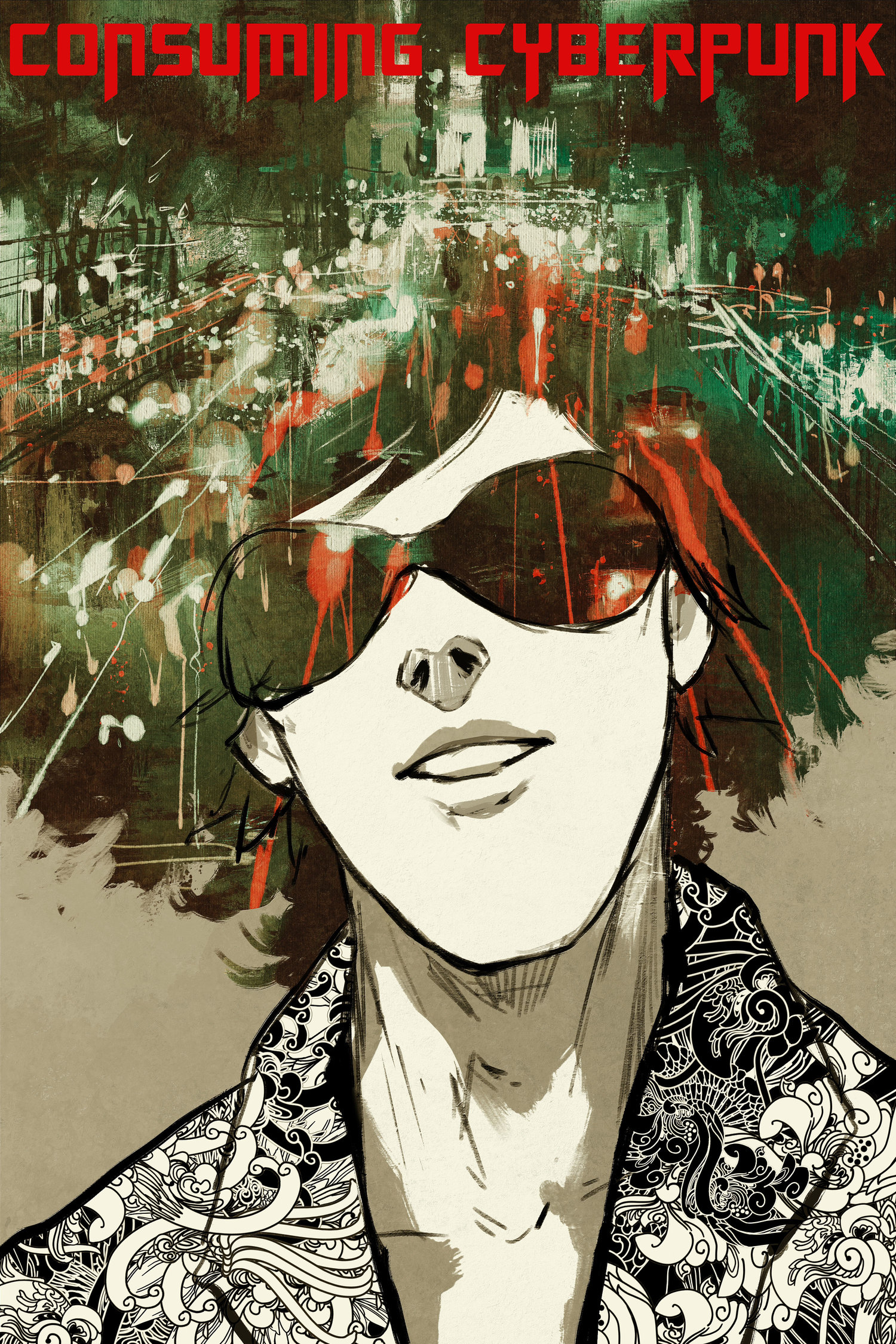Squid's Grief Adds The Buddy Cop & Slice Of Life To Cyberpunk
“You don’t belong in a world that sees you as useless.”
While Squid’s Grief begins like many cyberpunk novels, it diverges fairly quickly and ends aligned with a more solarpunk ideological standpoint than a traditional cyberpunk one.
Squid is relatable and likable. Probably the only way she is synonymous with the traditional cyberpunk anti-heroes is that she’s poor. Her poverty is ingrained and felt in the narrative in a way that is often not in traditional CP, though. In fact, for most of the book, we see the car thief attempting to get out of the life, touching on the one-last-job trope, but actually spends substantial time on it; making it the main focus of the story. This cleverly reinforces the systemic oppression those in poverty within the fictitious Baltus City feel on a daily basis. It’s more relatable passages of ones concerning job searches and the parallel to service work. Demeaning. Dehumanizing, unsatisfying. Only making a living via tips in establishments that have a prized rule: “do not retaliate”. Which certainly telegraphs what your treatment is going to be like in such places.
“Baltus City was a nation unto itself, a city-state where extremes were crammed into uncomfortable proximity. The obscenely wealthy, the devastatingly poor, towering skyscrapers and sleepy suburbia, all pressed together beneath the massive orbital highways that laced the city like Celtic knots of steel and concrete. And within the borders of the teeming state, all were equally ruled by the enigmatic crime lords of Baltus City.”
To flog this normal life along, a hyper altruistic cop named Casey gives Squid until her 18th birthday to get out of the life. After that, her “free passes”, so to speak, are up, and she’s considered to be another person who enters the system. Casey is incorruptible and naïve. Some people just aren’t prosecuted in the city, she knows this. It’s an insurmountable fact. Those connected to an omnipresence named Pearce, simply walk. But while the system is not perfect, it’s also all they’ve got. Giving up would mean letting go of any sense of accountability for criminals. And she just can’t abide it at a fundamental level.
People mess up. They’re not infallible. But given enough time and care, people can change and do “the right thing”. And that is her hope for young Squid.
“History isn’t destiny if you learn from your mistakes.”
In the last few days Squid has before she’s absorbed completely into the criminal underworld, Grief comes into her life. A man with a mysterious past (even to himself!). He’s an amnesiac who is found in the trunk of a car with a head injury. He’s also the thing that unwittingly keeps pulling her back to the underworld, as his past continually seems to come back and haunt him. Squid being caught in the crossfire.
Now, to my knowledge, aside from perhaps Almost Human, the “buddy cop” genre hasn’t largely been introduced to cyberpunk literature. That is, until now.
Squid and Grief’s relationship dynamic is very much reminiscent of this. It’s often funny and easy, and a lot of the fiction is dedicated to building their characterization through small, quiet moments as they navigate a new, awkward, and strange life. It is very effective in having the reader invest in these characters.
“Memories were funny like that. Squid could remember her old life, but she remembered it like someone else’s dream. It played through her mind like a silent film, so distant she could almost believe it had never happened. But once in a while, a half-remembered emotion would hit her, so visceral it stole her breath away.”
The most compelling part for me was that the thing keeping the people like Squid down was the system itself, which by itself, is not abnormal for cyberpunk, but the way in which it is conveyed is entirely so. It’s essentially a slice of life for the entire middle half of the book.
There aren’t any jobs for Squid that don’t commodify the qualities she finds intrinsic in herself and refuses to trade, despite her pretty dire situation. Living without heat and power, relying on the kindness of people within the system, like Casey, to squeak by with some modicum of freedom. Both outside of jail, but also simply existing as she is, unchanged by the demands of working the way up in the underworld, or a more legitimate job; both strips away aspects of her identity. In a sense, it’s a coming of age story, of sorts. There is no safety to be found in any space she navigates.
“There were no quick fixes, no magic pills, no waking up and becoming someone else. But there was hope, and determination, and sometimes, a little faith from someone who could see the person you were trying to become.”
Paralleling this is Grief’s story. A loss of innocence tale unspooling and foreshadowing what the demands of the criminal underworld are as it becomes clear Grief belongs to it in ways Squid hasn’t. Where she dabbles for the thrill and to pay rent, Grief embodies the darker elements of it and wishes to expel them from him. But cannot do so without first acknowledging that they are a part of him, which he refuses to do. This darkness reveals Casey’s “free pass” is an almost immeasurable kindness toward Squid, who may otherwise be consumed by the underworld if she can’t figure out how to truly get out.
“Possessions, places, people—they came and went, grew old, fell apart, and changed. But experiences formed the fabric of your life, woven into memories that helped you understand who you were, and why you were. Memories were a gift you could hold on to when everything else had been taken away. They were a scrapbook of emotions, triumphs and setbacks, that line of ink that told your story, stopping at the point where you stood right now.”
The law serves a purpose in this fiction and there is morality assigned to it. There are tonal shifts very often, which for me undermined some of the systemic issues it explores. There is a sense of hope despite the cyberpunk underpinnings of the setting.
In a time when cyberpunk should be diverging from the original motifs and explorations, there is this fun and well written, strange book which does so in the most surprising ways. Ordinarily, I can’t stand jokes and fiction that is to self-aware. But while it is funny, it is also sad. Life is a joke when there’s no real verticality in social structures to be had by the majority of the people in it. Living without joy is just another thing taken away from you. And so, sometimes, it really can be thematically on point to laugh at it.
Find Squid’s Grief on Amazon here. D.K Mok’s Twitter here, and her blog here.
“All those things he’d done were still inside him. All that violence and inhumanity, soaking through him like cheap rum in a Christmas cake. It wasn’t enough to change. You had to make amends.”


